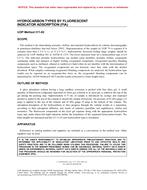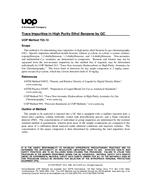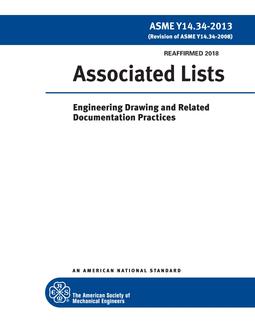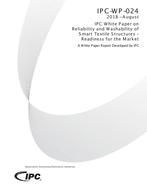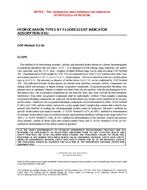
UOP 311
Original price was: $287.00.$172.00Current price is: $172.00.
Hydrocarbon Types by Fluorescent Indicator Adsorption (FIA)
| Published by | Publication Date | Number of Pages |
| UOP | 07/24/2002 | 14 |
UOP 311 – Hydrocarbon Types by Fluorescent Indicator Adsorption (FIA)
This method is for determining aromatic, olefinic and saturated hydrocarbons by column chromatography in petroleum distillates that boil below 315 degrees C. It is designed for full boiling range materials, not narrow cuts, especially near the 315 degrees C limit. Samples of higher boiling range can be analyzed using UOP Method 501. Depentanization of the sample by UOP 79 is recommended (see Note 1) if it contains more than 2 liq-uid volume percent (LV-%) C4 or 15 LV-% C5 hydrocarbons. The lower detection limit for a hydrocarbon type is 0.4 LV-%. The presence or absence of olefins below 0.4 LV-% can be confirmed by UOP Method 304. The indicated aromatic hydrocarbons can include some diolefins, aromatic olefins, compounds con-taining sulfur and nitrogen, or higher boiling oxygenated compounds. Oxygenated gasoline blending com-ponents such as methanol, ethanol or methyl-tert-butyl ether do not interfere with the determination of hy-drocarbon types. The oxygenated components are not detected, since they elute with the alcohol desorbent. Interference from other oxygenated compounds shall be individually verified. When samples containing oxygenated blending components are analyzed, the hydrocarbon type results can be reported on an oxygen-ate-free basis. Otherwise, the oxygenated blending components can be determined by either ASTM Method D 4815 or D 5599, and the results corrected to a total sample basis. Samples that contain dark-colored com-ponents that interfere in reading the chromatographic bands cannot be analyzed. Alternative methods for specific hydrocarbon type analysis include: 1) ASTM Method D 6379, an HPLC method for determination of aromatic hydrocarbon types in aviation kerosene and petroleum distillates boiling in the range from 50 to 300 degrees C; 2) ASTM Method D 5186, an SFC method for determination of the aromatic content and polynu-clear aromatic content of diesel fuels and aviation turbine fuels; and 3) ASTM Method D 6550, an SFC method for determination of the olefin content of gasoline.
Product Details
- Published:
- 07/24/2002
- Number of Pages:
- 14
- File Size:
- 1 file , 120 KB

